Michaela School: Muslim student loses prayer ban challenge
- Published
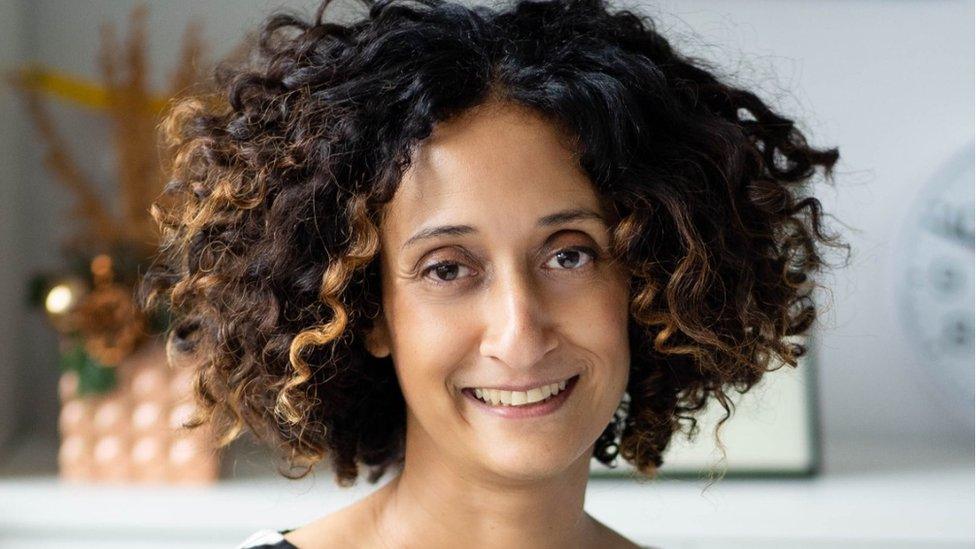
Reacting to the judgment, head teacher Katharine Birbalsingh said it was a "victory for all schools"
A Muslim student at a London school has lost a High Court challenge against its ban on prayer rituals.
Michaela School in Wembley was taken to court by the girl over the policy, which she argued was discriminatory.
The non-faith state secondary school previously told the High Court that allowing prayer rituals risked "undermining inclusion" among pupils.
The free school's founder and head teacher Katharine Birbalsingh said the ruling was a "victory for all schools".
In an 83-page written judgment dismissing the student's case, Mr Justice Linden said: "The claimant at the very least impliedly accepted, when she enrolled at the school, that she would be subject to restrictions on her ability to manifest her religion."
'Free to do what is right'
About half the school's roughly 700 pupils are Muslim, the court previously heard.
Students are expected to adhere to strict rules including focusing on teachers extensively during lessons and remaining silent in corridors, as well as observing restrictions on uniforms. The school is rated as outstanding by Ofsted.
In March 2023, up to 30 students began praying in the school's yard, using blazers to kneel on, the High Court heard.
Pupils are not allowed to gather in groups of more than four, including in the school yard.
The school introduced the ban in the same month due to concerns about a "culture shift" towards "segregation between religious groups and intimidation within the group of Muslim pupils", the court was told.
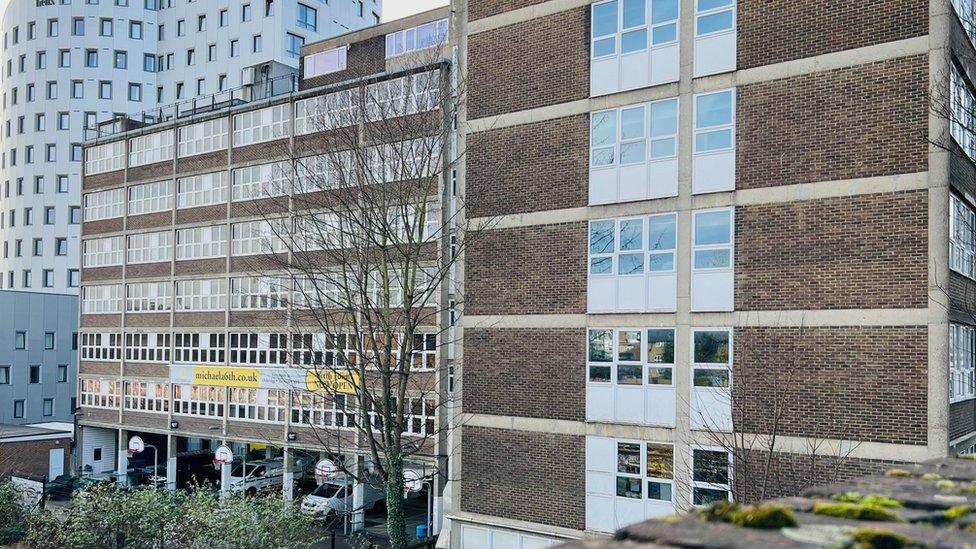
Michaela is a free school and therefore independent of the local authority, Brent Council
There is no legal requirement for schools to allow pupils a time or a place to pray.
This judgment supports the right of individual schools, head teachers and school governors to make a decision about what is best for their own pupils.
Some schools already set aside space for Muslim pupils to pray, others do not, but there is no overriding legal obligation to do so. The ruling has implications for every state-funded non-religious school in England.
Ms Birbalsingh, a former government social mobility tsar, said in a statement on X, formerly Twitter,, external that a school "should be free to do what is right for the pupils it serves".
She added: "Schools should not be forced by one child and her mother to change its approach simply because they have decided they don't like something at the school.
"If parents do not like what Michaela is, they do not need to send their children to us."
Following the ruling, the student said in a statement that she was "disappointed".
"As is set out in the judgment, I do not agree that it would be too hard for the school to accommodate pupils who wished to pray in the lunch break," she said.
"The school is very well run and generally very good at managing everything. The school doesn't wish to allow pupils to pray, has chosen a different path and the judge has found in their favour.
"Even though I lost, I still feel that I did the right thing in seeking to challenge the ban. I tried my best, and was true to myself and my religion."
She said she planned to remain at the school and focus on her GCSE exams.
"I am grateful for the understanding that my non-Muslim friends at school have shown as to the issues that affect us," she added.
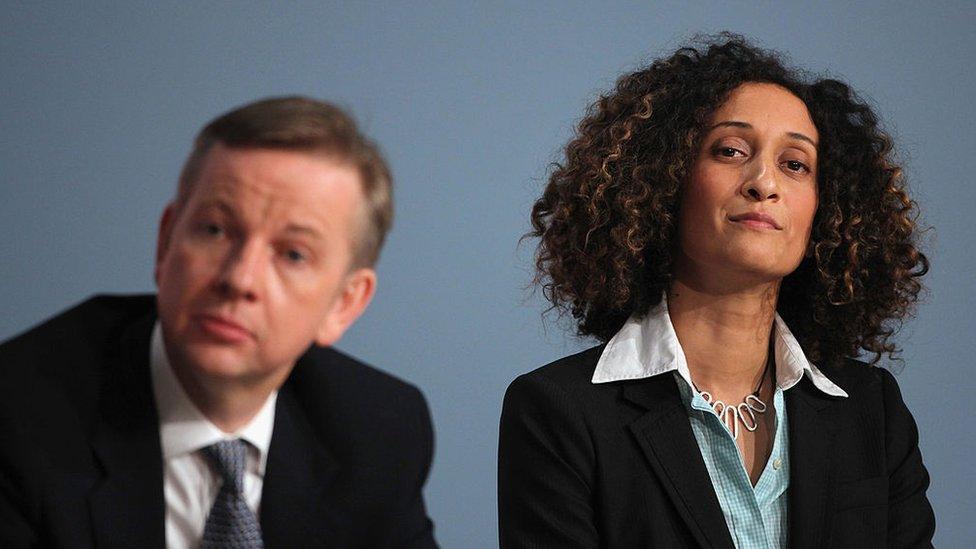
Ms Birbalsingh set up Michaela Community School a decade ago with the help of then-education secretary Michael Gove
In the legal action against the north-west London school's governing body, the Michaela Community Schools Trust, the student alleged that the ban on prayer rituals breached her right to freedom of religion.
The school argued its prayer policy was justified after it faced death and bomb threats linked to religious observance on site.
The pupil, who cannot be named for legal reasons, told the court the policy had "fundamentally changed" how she felt "about being a Muslim in this country".
Lawyers for the pupil told the judge at a hearing in January that she was making a "modest" request to be allowed to pray for about five minutes at lunchtime, on dates when faith rules required it, but not during lessons.
Representing the student, Sarah Hannett KC told the court that the school's policy had the "practical effect of only preventing Muslims from praying, because their prayer by nature has a ritualised nature rather than being internal".
In Islam, as opposed to most other religions, prayers are required at specific times during each day. However, as the High Court ruling pointed out, Islam does allow for "Qada prayers" or a "make-up" prayer for those that have been missed.
Dismissing the student's case, Mr Justice Linden said: "She knew that the school is secular and her own evidence is that her mother wished her to go there because it was known to be strict.
"She herself says that, long before the prayer ritual policy was introduced, she and her friends believed that prayer was not permitted at school and she therefore made up for missed prayers when she got home."
The judge upheld the student's challenge to a decision to temporarily exclude her from the school.
The key determination was about whether banning prayers compromised a child's freedom to express their religious beliefs under European human rights legislation, which the High Court decided it did not.
The case has led to renewed discussion about the broader role of faith within England's education system.
The National Secular Society, Humanists UK and others have long campaigned for reform, saying faith has no place in school.
'Impassioned stance'
Responding to the High Court judgment, Education Secretary Gillian Keegan said: "I have always been clear that head teachers are best placed to make decisions in their school.
"Michaela is an outstanding school and I hope this judgment gives all school leaders the confidence to make the right decisions for their pupils."
The student's mother said she was "dismayed" by the High Court's ruling.
She added: "My daughter's impassioned stance compelled me to support her, and I stand firm in that decision.
"Her courage in pursuing this matter fills me with pride, and I'm confident she's gained invaluable lessons from the experience."
Additional reporting by Aleem Maqbool

Listen to the best of BBC Radio London on Sounds and follow BBC London on Facebook, external, X, external and Instagram, external. Send your story ideas to hellobbclondon@bbc.co.uk, external
Related topics
- Published5 March 2024
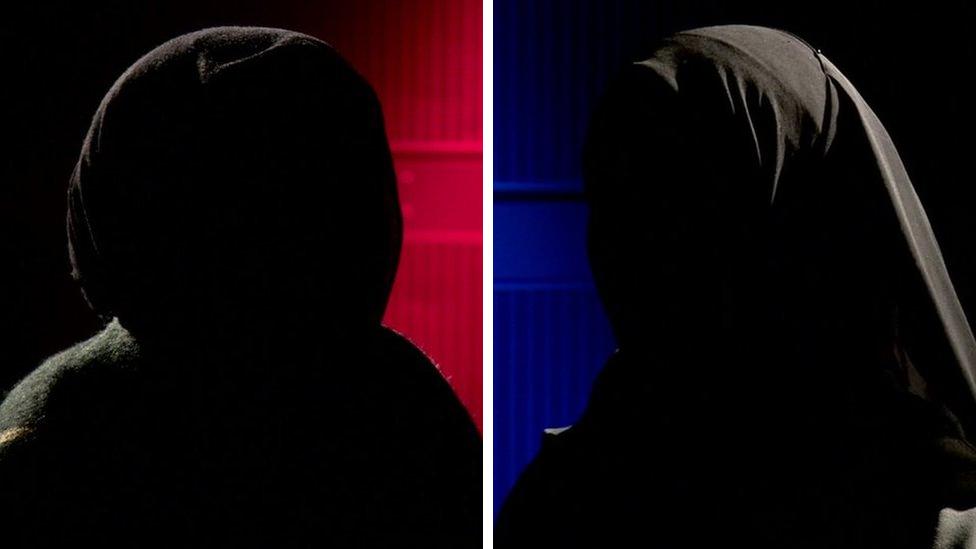
- Published17 January 2024
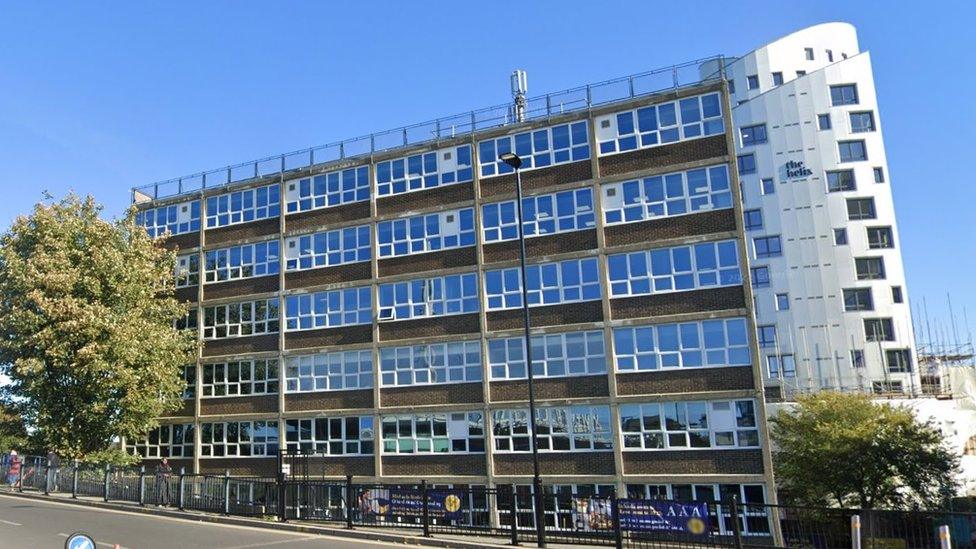
- Published16 January 2024
